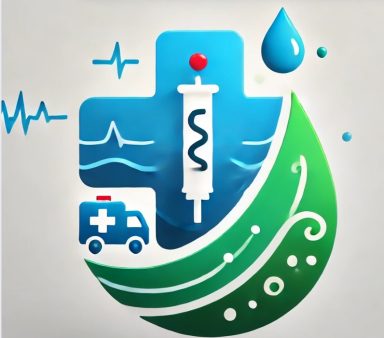What is diabetes?
Diabetes (also known as diabetes mellitus) is a chronic metabolic disease. Diabetes has too much sugar in the blood. The body cannot maintain blood sugar levels. The official name of the disease is diabetes mellitus. Type 1 and 2 diabetes are the best known. Anyone can get diabetes.
Type 1
If you have type 1 diabetes, your pancreas no longer makes insulin. As a result, your blood glucose levels are not maintained. You cannot prevent type 1 diabetes and it cannot be cured.
In type 1 diabetes, your own immune system turns off the cells that make insulin. Your body does need insulin. Insulin ensures that glucose (sugar), from the carbohydrates of your diet, goes to the body cells. If this does not happen, the glucose remains in the blood and your blood glucose levels are too high. In the long run, prolonged high levels cause complications. It is therefore important that you recognize and treat diabetes quickly.
Symptoms
- Being very thirsty.
- Frequent urination.
- Have a dry mouth.
- Losing weight for no reason.
- Feeling very weak and tired.
- Having trouble with your eyes, blurred or poor vision.
Do you think you have diabetes?
Go to your doctor. The doctor will prick a drop of blood and measure your blood glucose level. If it is higher than 11 mmol/l (millimol per liter of blood), a second 'fasting' measurement is required. For this you are not allowed to eat or drink eight hours in advance. If the value is higher than 6 mmol/l, you have diabetes.
Treatment
Type 1 diabetes is treated with insulin. You do this with an insulin pen or an insulin pump. The goal is to keep your blood glucose levels between 4 and 10 mmol/l. To keep an eye on your blood glucose levels, you should regularly measure them yourself with a blood glucose meter.

Nutrition in type 1 diabetes
You can eat anything, but know what you eat. The better you know how many carbohydrates (sugars in food) you are getting, the better you can adjust the treatment accordingly.
Cause of type 1
The cause of type 1 diabetes is not yet known. Genetic predisposition and heredity sometimes play a role. Other possible causes include viruses, diet, and environmental factors. What is certain is that the immune system attacks the cells that make insulin. A lot of research is being done into why this is.
What can you do yourself with type 1 diabetes?
Keeping your blood glucose levels at the right level. That's something you do every day if you have type 1 diabetes. Because diabetes has an impact on many aspects of your daily life.
Diet, exercise, medicines: they all affect your blood glucose levels. Through experience you get a better grip on your diabetes. Ask questions, get to know your body, learn about diabetes and influence your diabetes!
© Copyright. All rights reserved.
We hebben je toestemming nodig om de vertalingen te laden
Om de inhoud van de website te vertalen gebruiken we een externe dienstverlener, die mogelijk gegevens over je activiteiten verzamelt. Lees het privacybeleid van de dienst en accepteer dit, om de vertalingen te bekijken.
